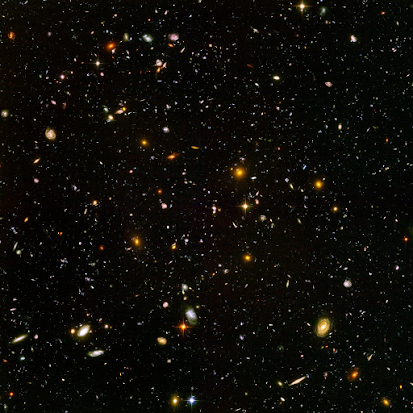The book is a marvelous introduction to some great thinkers that at least I was not aware of, and the relevance of Pilate's innocence or guilt to the separation of church and state, and much else in Western European history.
Here is a link to a more extensive review.
One of those thinkers new to me is Hugo Grotius, whose influence in Western thought is vast. He is the instigator of "the law of the sea", and also the laws of warfare. Philosophers heavily influenced by his thought include Hobbes, Pufendorf, Thomasius, and Rosseau. His thought even influenced the post USSR world order, and some declared the 1990's as "a Grotian moment".
My memory was restored as to the meaning of the inscription Pilate wrote above Christ on the cross. My memory had "King of the Jews". While aware of seeing "INRI" on crucifixes, I recall looking it up and forgot it long ago. It is the acronym for Iesus Nazarenus, Rex Iudaeorum in Latin, translating to English, as “Jesus of Nazareth, the King of the Jews.” (so, I award myself half a point for "in the ballpark"). The "Titulus Crucis", Latin for “Title of the Cross,” is important because it is the statement of the official reason for why the person was crucified. Some claim that Jesus was actually an insurrectionist, and that is why he was crucified. If that was in fact the reason, it seems impossible that a Roman governor would not state that reason in the Titulus.
Another area of knowledge that I have curiosity about but have not looked into is the idea of holy relics, so important at the time of the Reformation. It is obvious that many were forgeries created to either provide "evidence" of the life of Jesus and his crucifixion, or simply to make money. The search for the Holy Grail relic, covered in the Indiana Jones movie is one example many are aware of, and I'd put the Shroud of Turin, as an example of a purported relic that exists, and its authenticity has been a subject of attempted scientific verification.
Possibly, a piece of the cross with the inscription exists, and is currently displayed. Such things are naturally appealing to humans attempting to "prove/disprove" Christianity, or just basic curiosity. Like Thomas, I understand the yearning for proof, but pray that my faith will be sufficient to receive the blessing of John 20;29 "Then Jesus told him, “Because you have seen me, you have believed; blessed are those who have not seen and yet have believed.”
On page 145, there is a reference to Augustine's "City of God against the Pagans". I read and reviewed this massive work back in 2015. To ridiculously summarize; "City", and also the primary significance of the crucifixion to Western secular history, when Jesus told Pilate "My kingdom is not of this world", the idea of there being a kingdom outside the world was radical. Kingdoms had always had a state religion, and although the Romans attempted to assimilate the religions they conquered, the Roman state and its gods were one. The emperor was THE authority and considered a god.
"And what are these "cities"? Behind the visible screen of global history, Augustine posits (or intuits) the dim presence and cryptic influence of a divine city that is headed by Christ, and constituted by7 love of eternity, and a human city that is seduced by Christ's adversary, Devil, and constituted by a love of the saeculum or present age."
Chapter 4 introduces us to Dionysius Exiguus (who created the BC/AD system (so hated by those who detest Christianity and its foundational importance for Western civilization), and Pope Gelasius I, the first pope called "the vicar of Christ" and is a critical person in the rupture of the Roman church creating the church of Constantinople (Orthodox) in 1054.
Chapter 15 brings us to the thinking of Dante relative to Pilate and the Crucifixion.
"Who is Jesus' judge per Dante? Pontius Pilate. -- Nothing less than the redemption of the world hangs on the fact that as Dante writes, the sufferings of Christ were inflicted by an authorized judge. To deny this, for Dante is to deny the Christian faith".
We are also introduced to "The Great Refusal", an error attributed in Dante's Inferno to one of the souls found trapped aimlessly in the vestibule of Hell. Trapped because of the refusal to make a crucial decision he was required to make. Pilate is one of the candidates trapped in that vestibule for eternity.
I'll leave my review at this point. The idea of "innocence" in the sense of the book title is a legal idea ... difficult to ascertain because the earthy "authority" at the crucifixion was Roman and Jewish, with Rome being superior. Other than an academic tracing of a lot of history explaining how the Crucifixion and the judgement involved shaped both the Christian church and Western civilization, the book will interest few beyond academia.
Legally, Pilate is guilty of not doing his duty. He was the authority with the power to rule, and he merely stood by and let Jesus be crucified -- by Roman soldiers, not Jews. Since neither Pilate or the Jews believed that Jesus was the Messiah, neither can be guilty of "deicide" in a secular/legal context.
The charge of Jewish deicide based on the Jewish crowds' statement "His blood be on us and on our children!" has sadly been used to justify a lot of antisemitism by Christians.
As we pass from Lent to Easter, it is important to know that all of humanity are guilty in the crucifixion through our original and many subsequent sins. Those passing judgement at the crucifixion didn't know Christ was the Messiah, we do. We are without excuse.
